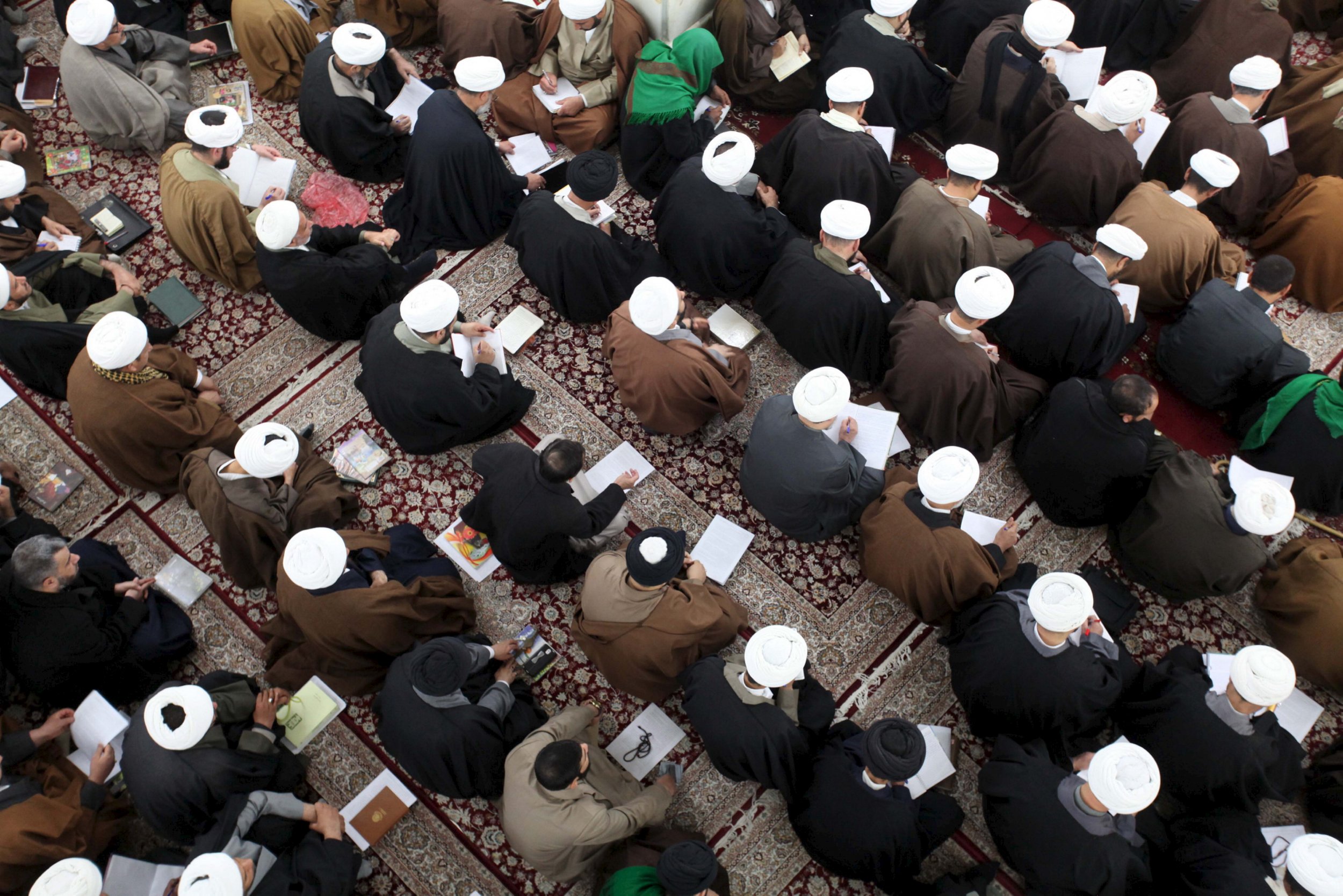
To what extent does it matter whether Christians and Muslims worship the same God?
The question arose with Chicago-area Wheaton College, one of Evangelicalism's most prestigious schools, suspending a professor for declaring the Christian and Islamic deity is the same. Her remarks came during her very publicly wearing an Islamic headscarf, or hijab, during the Christian season of Advent in solidarity with American Muslims.
Evidently the professor, like many other American Christians since 9/11, including President President George W. Bush, felt better Christian-Islamic relations are facilitated by affirming a common faith.
The intent is good, but the effort maybe misplaced and unnecessary. It may also partly reflect an American Evangelical inability to express a public theology beyond the church's own faith talk.
Catholicism may offer helpful counsel, particularly Pope Paul IV's 1965 declaration Dignitatis Humanaeaffirming religious liberty for all people. The landmark document doesn't strain to find theological commonality among all religions. Instead it focuses on the innate dignity of all persons rooted in their creation as image bearers of God. The Gospel is for all people, but the reception of it is a God-given choice. Persons of all faiths and no faith retain their equality and dignity, which all societies should respect.
Evangelicals, while understandably focused on the Bible, as a mostly modern American movement don't always draw upon the wider moral resources of Christian tradition. Wheaton College in a recent statement affirmed religious liberty for Muslims by citing the U.S. Constitution. But most of humanity doesn't live under our Constitution. All of humanity is entitled to religious liberty for universal reasons explained in Dignitatis Humanae.
Had the suspended Wheaton professor, instead of speaking modern Evangelical talk by insisting Christians and Muslims share the same deity, cited all persons as equal image-bearers of God, she might have avoided considerable controversy. She went further, using traditional Muslim language, saying she "stands in solidarity" with Muslims not because they're Americans but because they, like she, are "people of the book," i.e., Abrahamic traditions.
Searching for spiritual commonality, the professor was citing a historic Muslim explanation for why monotheists like Christians and Jews are tolerated under Islamic political subordination but perceived pagans are not.
The teaching is not just historic. Iraq's Yazidi sect, deemed idolaters by ISIS, are consequently targeted for genocide. Theoretically Christians under Islamist rule should be tolerated by paying a special tax, but ISIS isn't playing under even the restraints of harsh Islamist ideology.
In her quest for brotherly harmony between Christians and Muslims, the professor was unintentionally using language that historically had denied not just rights but even existence for people not "of the book." Her comment implies, no doubt unintentionally, she feels less or no solidarity with people not "of the book," like Hindus, Buddhists, Shintoists and about half the world.
Again, stressing the language of universal God-given dignity rooted in creation would have spared her some of this mishap. (She briefly cited "human dignity" without citing its divine source.)
Arguably, the professor's wearing an hijab, intended to show solidarity with Muslims, also included other unintentional messages. Not all Muslim women globally want to wear headscarves or, in some strict cultures, burqas and veils. But they often have no choice and are punished in some societies for defiance.
In some majority Muslim places, non-Muslim women also are compelled to wear head coverings, lest they risk scorn or even violence. Some very independent Muslim women in the West wear the hijab proudly as an emblem of their faith. But for others, it symbolizes inequality for women.
Evangelicals and no doubt many other Christians and Americans need more sophisticated ways to affirm equality and dignity for all persons without resorting to dubious history or portraying religious differences as necessarily political and social conflicts.
Christian moral tradition across centuries, and not without its own conflict, has developed ways to affirm pluralism in society without forcing theological compromise for religious groups. America's founders drew upon this legacy in creating our own unique brand of civil religion allowing different faiths with integrity to contribute to American democracy.
Thomas Jefferson, a sort of Anglican Unitarian, expressed part of the American understanding of religious liberty when saying, "The legitimate powers of government extend to such acts only as are injurious to others. But it does me no injury for my neighbor to say there are twenty gods, or no god. It neither picks my pocket nor breaks my leg."
Other Founders stressed that democracy needs religious people, upholding morality, to persevere. But generally, all ultimately agreed neither the state nor society should act coercively on religion and instead should protect its free practice.
Wheaton College, like any religious institution, of course is free to uphold its Evangelical doctrines and hire faculty accordingly. So too can Muslim schools. Protecting the rights and dignity of all in a free, lawful and decent society doesn't require compulsory agreement on the right deity or right book.
But it does need an appreciation of intrinsic human dignity that, although developed in Christian teaching, has universal application for the peace and harmony of all societies who learn and heed it.
Mark Tooley is president of the Institute on Religion and Democracy and editor, Providence: A Journal of Christianity & American Foreign Policy.
Uncommon Knowledge
Newsweek is committed to challenging conventional wisdom and finding connections in the search for common ground.
Newsweek is committed to challenging conventional wisdom and finding connections in the search for common ground.
About the writer
To read how Newsweek uses AI as a newsroom tool, Click here.






